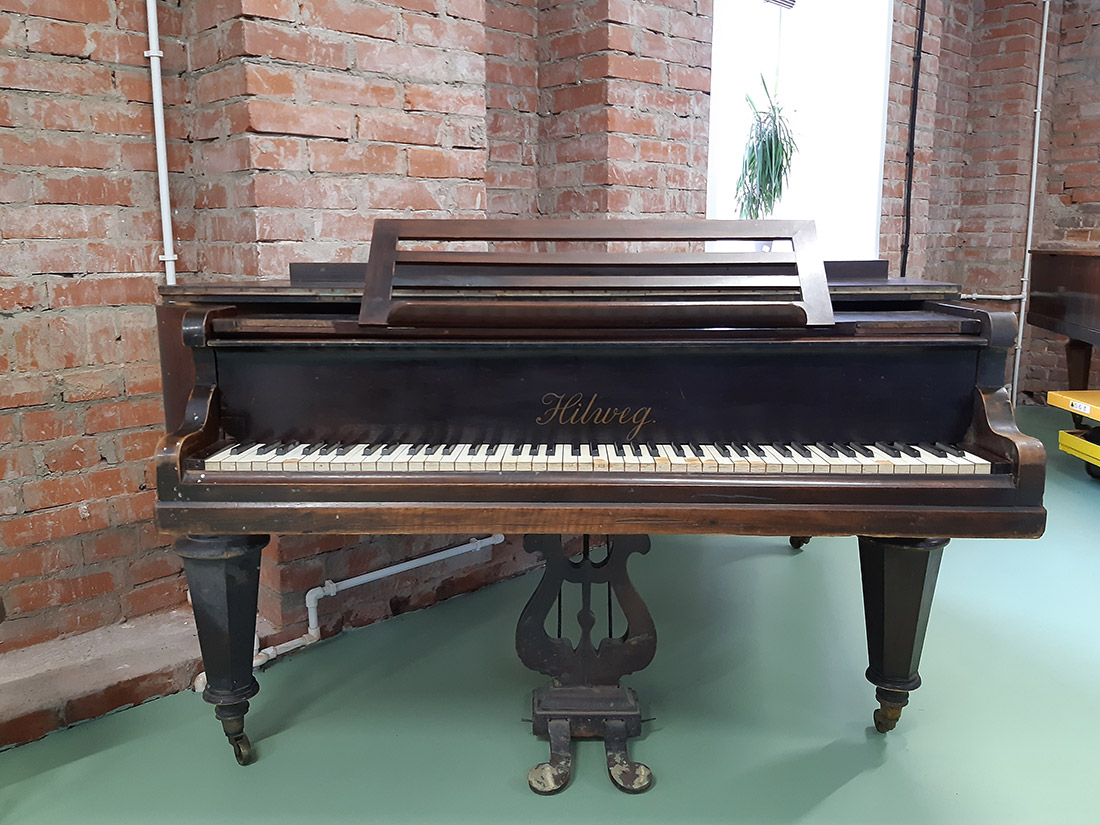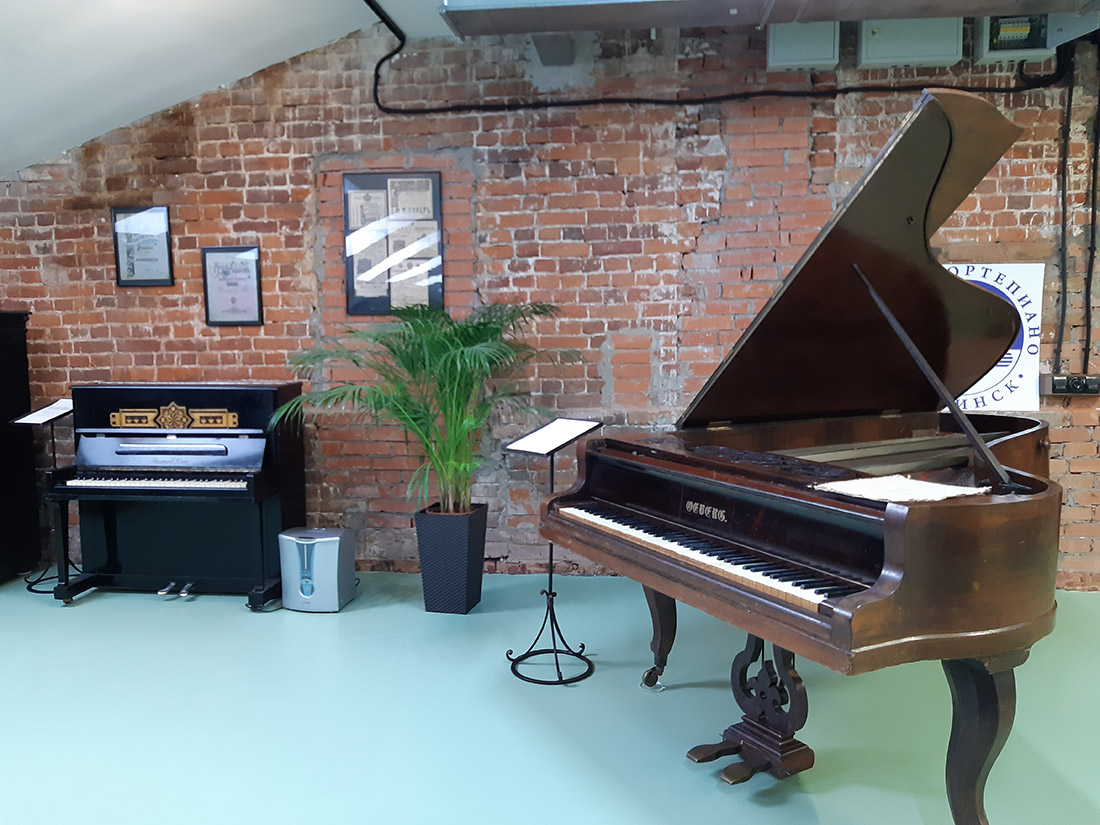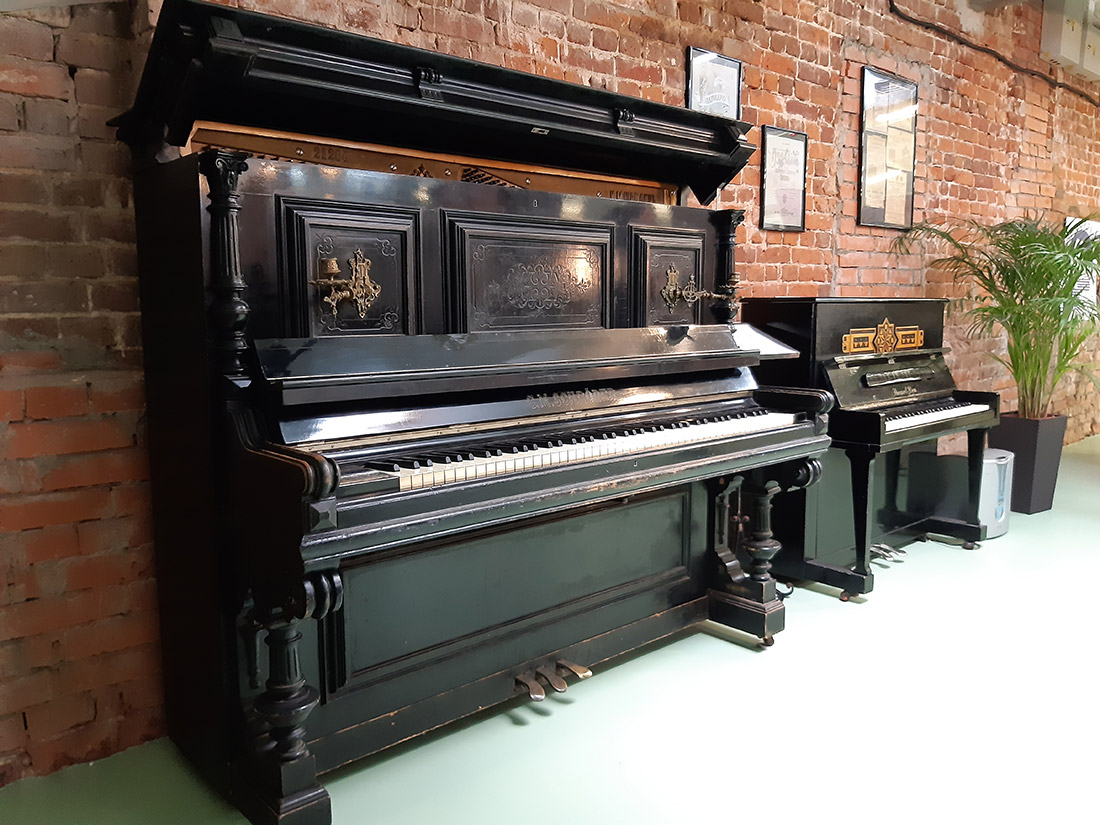The Piano Museum and Workshop of Alexey Stavitsky
Yaroslavl Oblast
Contact information
Yaroslavl Region, Rybinsk,
Volzhskaya Embankment, Building 67-75
Tel.: +7 (910) 973-33-00
E-mail: muzejfortepiano@mail.ru
Operating hours
Tue – Sat: 16:00 – 18:00
Visiting at other times is available by appointment
Ticket price
50-200 rubles, discounts for children and senior citizens
Founder, owner, and director of the museum
Alexey Stavitsky
Founded
2019
The Piano Museum opened in December 2019 and has already won the hearts of the citizens of Rybinsk. It’s been described as an incredible, large, and beautiful project. After the visit to the Piano Museum, many people say that it’s the best thing that has happened to the city lately. And there is no surprise in that. The founder of the museum is a musician, owner of a unique collection of historical pianos, piano tuner and restorer named Alexey Stavitsky, whose name is recognized by everyone in the world of piano music.
Stavitsky dreamed of creating a museum for several years. To educate himself on museum studies, he travelled all over Europe, including visits to Poland, the Czech Republic, France, and Germany, where he attended historical performance competitions. This powerful and real experience allowed him to open not just a museum, but a place to hold meetings, chamber concerts, competitions, and workshops.
The Piano Museum is a small concert hall, a place of worship for black and white keyboards. Here foreign old pianos and grand pianos from Germany, France, Vienna, England compete with Russian instruments, made prior to the revolution or in the Soviet era. “Does anyone know nowadays, that Steinway is not the pinnacle of the art of piano building? That we used to have two dozen factories just in Moscow and St. Petersburg, and all of them were world-class? Our culture of piano manufacturing is one of the reasons why we were blessed with people like Mussorgsky, Taneyev, Balakirev, Glinka, Prokofiev, Shostakovich…”, says Alexey Stavitsky.
In total, the Piano Museum collection includes 120 instruments, and each has its own story! Twenty of them are now exhibited in Rybinsk. In addition to grand pianos and pianos, there are also harpsichords. The oldest instrument is 180 years old. This grand piano was released in the 1840s by the Eberg factory in Moscow. In the future, the museum plans to bring in even older instruments: an organ and a rectangular table-shaped piano made in 1805.
The grand piano of Mussorgsky, (Gentsch Piano Factory, St. Petersburg) is waiting for restoration. The Hilweg baby grand piano was built around the same time, but in Moscow; the owners are unknown. The collection also includes the grand pianos of Alexey Lubimov and Andrew Myasoedov, teachers of Alexey Stavitsky. and the grand piano of Konstantin Igumnov, a professor at the Moscow Conservatory, whose student, Maria Chelishcheva, established the first music school in Rybinsk before the revolution.
The highlight of the collection is the Red October grand piano. It’s been played in dozens of concert halls. It was played in the Tolerance Centre and in Gorky Park. The composer Vladimir Martynov played his pieces on it. This grand piano has seen much more than an average instrument from a conservatory. Once in 2014, it performed a 23-hour concert marathon near the Tchaikovsky monument by the Moscow Conservatory at the anniversary celebration of Alexey Liubimov, renowned pianist and professor at the Conservatory.
“The Russian piano is disappearing like the City of Kitezh”, the restorer complains. “I’m trying to turn this process around. I want to create a restoration school and open a Department of Scientific Research at the museum. What I want to do is pass on my knowledge, and let all pianists learn and try this craft; they haven’t even touched it before. Musical Russia, Russia of pianos is a large country in itself, an authentic and vibrant part of world culture that has been around for more than two centuries. And together we can enrich and preserve it, and tell our descendants about its beauty.”
The Piano Museum as a concert hall has the most unusual set of grand pianos for the pianists to choose from, up to 5 instruments from different factories, and the list of instruments continues to grow.



